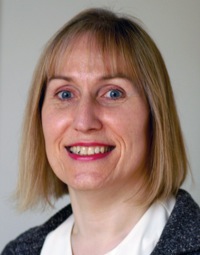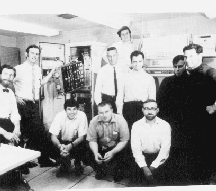 |
| Nach Hause | Roll: botic | ghack | juortner | p3k | Inactive: catfish | girlsCamp | ribbonfarm |
|
last updated: 15.08.25, 06:48
 Books and Fashion
Business and Economy Cloud Appreciation Media Ecology Movies and Music Glossaries and Grammars Great Jewish Songs Obituaries People in Information Science Political Science ... all tiny topics  Youre not logged in ... Login
... antville home
Terms of Service About us / Imprint
  I totally agree
mit der Meinung, dass das Hemisphärenmodell überholt ist. Die mediale Lust am Untergang hat wohl ein rational kalkulierendes Element auf der einen und massenpsychologisches Element auf.... by StefanL (12.07.25, 21:26) ...
La crisi consiste appunto nel fatto che il vecchio muore e il nuovo non può nascere: in questo interregno si verificano i fenomeni morbosi piú.... by tobi (28.02.25, 16:22) ...
Haschimiten-Familie Vater:Husain ibn 'AliEmir von Mekka von 1908 - 1916König des Hedschas von 1916 - 1924 Sohn Faisal:Verhandlungsführer der "Araber" in Paris König des Irak von 1921.... by StefanL (19.01.25, 06:26) Ich habe eh
einen Esseh über den Kulturpessimismus, der ja grundlegend mehr reaktionär als konservativ ist, in Arbeit. Wird aber noch dauern. by StefanL (10.01.25, 23:50) Woher kommt diese Lust am Untergang?
Friedrich Sieburg kommentierte »die Tendenz der Medien, unentwegt den Weltuntergang durch einen Atomkrieg vorauszusagen als weinerliche, kaum zu ertragende Geschwätzigkeit. Sie sei auch deswegen absurd,.... by tobi (10.01.25, 19:18) Read the books,
watched the series for a while. Got distracted then. Did NOT buy the T-Shirt. Interesting problem. Thanks! Slice, slice, very slice. Thank you for not killing.... by StefanL (06.01.25, 11:39) We could just barely
keep the censor's office and the press team of the president-elect from intervention but here are our apologies and our thanks for these valuable hints.... by MaryW (17.12.24, 23:37) ...
The (correct) first name of Mr. Zelenskyj is the Ukrainian Володи́мир, not (of all things) the Russian Влади́мир 😿 Second name is Oleksandrovych. Ложка дьогтю у бочці.... by tobi (16.12.24, 19:15) Du hast recht,
Universal-Genies brauchen wir echt keine mehr. Ich wollte eh nur sagen: Things are going to slide, slide in all directions. Won't be nothing, won't be nothing you.... by MaryW (31.10.24, 23:13) ...
Hm. Ich glaub, da gibt es schon noch einige Kandidat*innen. Mir fällt spontan Lisz Hirn ein. Ich fürchte nur, die schaffen es nicht mehr, so.... by tobi (03.10.24, 19:21) Das sind
wirklich die allerletzten, diese Streberschweine. Aber sonst auch. by StefanL (18.09.24, 08:42) Es gibt sogar
Verbrecher, die das ganze WE zusätzlich durcharbeiten, um Pegelkarten zu bauen. Das sind dann die allerletzten. by gHack (17.09.24, 18:56) Geändert
Inzwischen hat Herr Fidler den Fehler erkannt und korrigiert sowie sich inzwischen bei den LeserInnen entschuldigt. Nur damit das nicht untergeht. Wir haben hier in der.... by StefanL (21.02.22, 09:17) There has been evidence
that the important and successful ideas in MSFT - like licensing the Unix source code in the 70ies and learning from it and licensing QDOS.... by StefanL (02.01.22, 11:18) Now
I think I maybe know what you meant. It is the present we know best and the future we invent. And history is mostly used.... by StefanL (02.01.22, 09:51) ???
Hey, it's just a phrase wishing to convey that you're always smarter after the event than before it. by StefanL (28.12.21, 07:35) Addendum
Oracle is now mentioned in the English Wikipedia article on teletext and even has its own article here. Electra has one too. by MaryW (22.12.21, 07:11) We have grossly erred
At least in point 5. We thought, people would have come to the conclusion that permanently listening to directive voices as an adult is so.... by MaryW (21.12.21, 07:42) Did not want to spell the names out
Ingrid Thurnher should have been easy, as she is pictured in the article. Harald F. is an insider joke, the only media journalist in Austria,.... by StefanL (19.12.21, 08:45) ...
with four letters it becomes easier though i am not sure with hafi… anyhoo, inms guessing acronyms or whatever this is. *it’s not my steckenpferd by tobi (24.11.21, 20:49) |
|||||||||||||||||||||||||||||||||||||||||||||||||||||


